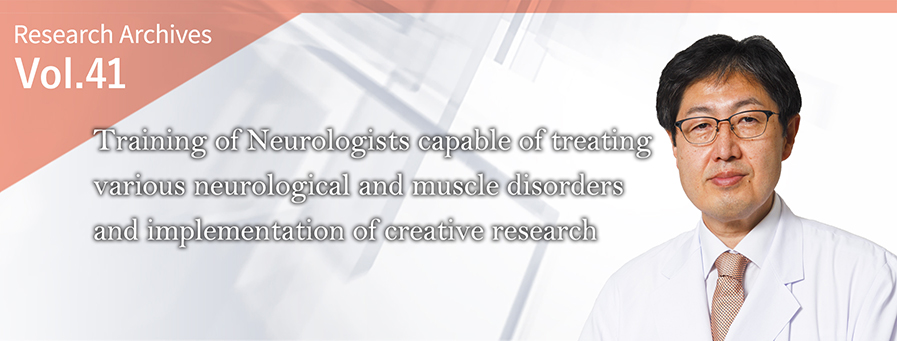
Department of Neurology, Graduate School of Medicine, Hokkaido University
Ichiro Yabe M.D., Ph.D.Specialized
Medicine
Academic & Professional Experience
After receiving board certification as a clinical neurologist, I began my research as a PhD candidate in the Department of Neurology, Hokkaido University Graduate School of Medicine in Sapporo, Japan. Since that time, I have been conducting molecular genetic studies on the neurodegenerative disorder. Since obtaining my PhD in 2002, I have been working as a physician and faculty member (assistant professor, lecturer, associate professor, and professor) at the Department of Neurology, Hokkaido University. I have also been playing a central role in training medical students and young doctors. My research employs mainly molecular genetic approaches and spans the fields of clinical diagnosis, genetic association studies, and molecular epidemiology. In addition, I have extensive knowledge in neurophysiology and symptomatology, and have been actively involved in collaborations in these research areas. The results of our studies were published in international, peer-reviewed journals. When combined with articles from other research fields, I have published 243 English papers in prominent journals. I have presented my research at many prestigious international meetings. For example, I was invited to give a talk at an annual meeting of the American Neurological Association. I gave some lectures at annual meetings of the Japanese Society of Neurology.
Elucidate the pathogenesis of neurological disorders using genetics
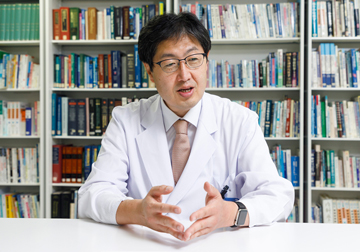
The Department of Neurology was established following its separation from the Department of Neurosurgery in 1987. Professor Ichiro Yabe is currently serving as the third professor of the department.
As a clinical department focusingon both neurological and internal medicine, it deals witha wide variety of cases ranging from prevalent diseases that occur in the brain, spine, peripheral nerves and skeletal muscles, such as dementia, cerebral stroke, headache and epilepsy, to rare disorders. The English name of the department was changed from the Department of Neurological Medicine to the Department of Neurology to align with the international standard.
In terms of research, the department is working on the pathology of neurological disorders and the establishment of treatment methods using genetics. For example, it discovered SCA14, which is a type of hereditary spinocerebellar ataxia (SCA) caused by PRKCG gene mutation. Concerning SCA1, which was an SCA presented by Hokkaido University for the first time in the world, an investigator-initiated clinical trial of spinocerebellar ataxia type 1 (SCA1) gene therapy based on molecular mechanisms is currently being conducted with the support of the Japan Agency for Medical Research and Development (AMED), and efforts are being made toward the development of the world’s first disease-modifying approach using gene therapy.
In addition, the department has recently reported the involvement of the bassoon (BSN) gene in a type of Parkinson’s syndrome. Since the publication of that report, institutions throughout Japan have reported neurological disorders possibly caused by BSN gene mutation. Research is being continued for further elucidation of pathogenesis from multiple viewpoints, such as studies using knock-in mice and cell lines and the accumulation of clinical data including histopathological findings.
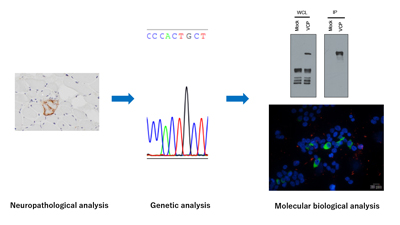
“In this department, we promote research that can lead to the clarification of pathogenesis and establishment of treatment methods by conducting neuropathological analysis to study brain and other nervous and muscular tissues, genetic analysis to study genetic mutations related to diseases and molecular biological analysis to identify the relationship between genes and pathological changes,” says Professor Yano. While many things about the relationships between genes and disease pathology remain unclear, Professor Yabe’s research group aims to achieve clinically useful research results by including gene therapy and other disease-modifying approaches.
The Department of Neurology is also the secretariat of the Cognitive Science Research Center, which is a collaborative project center at Hokkaido University, and Professor Yabe serves as its representative. “In the super-aging society of Japan, the number of dementia patients is estimated to be seven million. In Hokkaido, where the declining birthrate and aging population are progressing faster than in other regions, it is particularly crucial to address dementia. This project is expected to integrate dementia research, which has been conducted separately, and promote industry-university cooperation, in which Hokkaido University plays a central role.”
One-of-a-kind research that can only be conducted by Neurologists
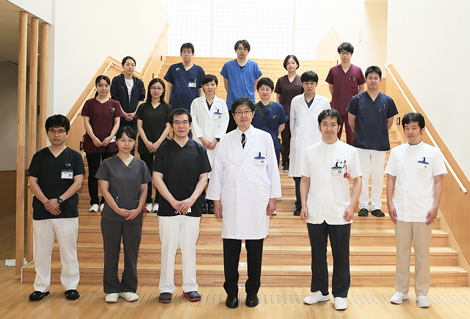
Many staff members of the Department of Neurology have acquired certifications, including Board Certified Neurologist/Fellow of the Japanese Society of Neurology, Board Certified Doctor/Fellow of the Japanese Society of Internal Medicine, as well as Board Certified Geneticist/Fellow of the Japan Society of Human Genetics, Board Certified Member/Fellow of the Japan Society for Dementia Research, Board Certified Specialist/Fellow of the Japan Stroke Society, Board Certified Member/Fellow of the Japan Epilepsy Society and Board Certified Clinical Neurophysiologist of the Japanese Society of Clinical Neurophysiology.
Most graduate students enter the department after finishing initial clinical training. They acquire the credential of Board Certified Neurologistof the Japanese Society of Neurology Specialist while engaging in graduate school research, and practice outpatient care concurrently. Inpatient care is mainly provided by young neurologists who have worked as senior residents for up to seven years, with the ward director supervising and instructing them. Almost all of the medical staff have acquired certification for Board Certified Doctor of the Japanese Society of Internal Medicine and Board Certified Neurologist of the Japanese Society of Neurology, and a system enabling them to acquire the credential as a sub-specialty has also been established.
“There are many unknowns about neurological tissues compared with other organs, and much still remains to be explored in this field. Many students who study to become neurological specialists are interested in clarifying the mechanisms of neurological disorders, and they seem to have a high aptitude for research right from the start,” says Professor Yabe. Members of the department treat various neurological disorders at Hokkaido University and regional partner institutions, and build relationships of trust with patients and their families. Since the Hokkaido University Department of Neurology, which provides highly specialized care, is a central neurological institution in Hokkaido, it attracts numerous patients with diseases that are difficult to diagnose and intractable diseases with no established treatment. New research interests arise there, leading to one-of-a-kind research that can only be conducted by clinical doctors. As our department is also conducting joint research with multiple departments within and outside the university as well as actively presenting research results, we are receiving requests for genetic analysis and autoantibody assay from institutions across Japan. Professor Yabe says that it is the department’s mission to properly study diseases based on experience gained in clinical practice, and that the ultimate goal is to link pathological analysis to new therapies.
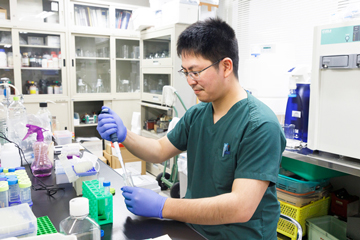
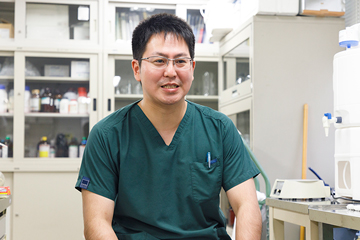
(Interviewed in August 2022)
Establishment of an education system that places importance on life events
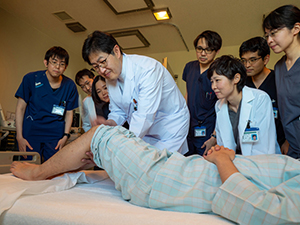
When Professor Yabe makes his rounds, he discusses what kind of pathological conditions and diseases are possible based on the clinical courses and neurological findings obtained through actual treatment. Residents learn what a clinical doctor should be like and their mindset as researchers is fostered by providing treatment themselves and gaining experience with many diseases.


